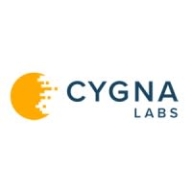

Microsoft Active Directory and Cygna Auditor Platform are complementary in IT infrastructure management and auditing. Cygna Auditor Platform has the upper hand due to its advanced auditing features and user satisfaction.
Features: Microsoft Active Directory provides streamlined user authentication, comprehensive group policy management, and extensive integration with Windows environments. Cygna Auditor Platform offers robust auditing, real-time monitoring, and compliance reporting.
Ease of Deployment and Customer Service: Microsoft Active Directory benefits from seamless integration within Windows environments, facilitating deployment with existing infrastructure. Cygna Auditor Platform provides a smoother setup experience with user-friendly configurations and dedicated support services.
Pricing and ROI: Microsoft Active Directory typically incurs higher setup costs due to infrastructure and licenses, offering long-term ROI in extensive IT environments. Cygna Auditor Platform balances initial setup costs with high ROI by mitigating compliance risks and enhancing audit efficiency.

Cygna Auditor Platform delivers robust compliance monitoring, enhancing data security and governance for enterprises seeking to streamline audit processes.
Designed for organizations ready to strengthen internal controls, Cygna Auditor Platform provides comprehensive audit capabilities. Its flexibility allows for real-time tracking and management of data across networks, reducing risk and simplifying compliance with regulatory standards.
What are the key features of Cygna Auditor Platform?In sectors like healthcare, finance, and retail, implementing Cygna Auditor Platform aids in meeting stringent compliance mandates while protecting sensitive data. By leveraging its capabilities, firms can drive operational efficiency and maintain trust in their data practices.
Active Directory stores information about objects on the network and makes this information easy for administrators and users to find and use. Active Directory uses a structured data store as the basis for a logical, hierarchical organization of directory information.
This data store, also known as the directory, contains information about Active Directory objects. These objects typically include shared resources such as servers, volumes, printers, and the network user and computer accounts.
Security is integrated with Active Directory through logon authentication and access control to objects in the directory. With a single network logon, administrators can manage directory data and organization throughout their network, and authorized network users can access resources anywhere on the network. Policy-based administration eases the management of even the most complex network.
We monitor all Active Directory Management reviews to prevent fraudulent reviews and keep review quality high. We do not post reviews by company employees or direct competitors. We validate each review for authenticity via cross-reference with LinkedIn, and personal follow-up with the reviewer when necessary.